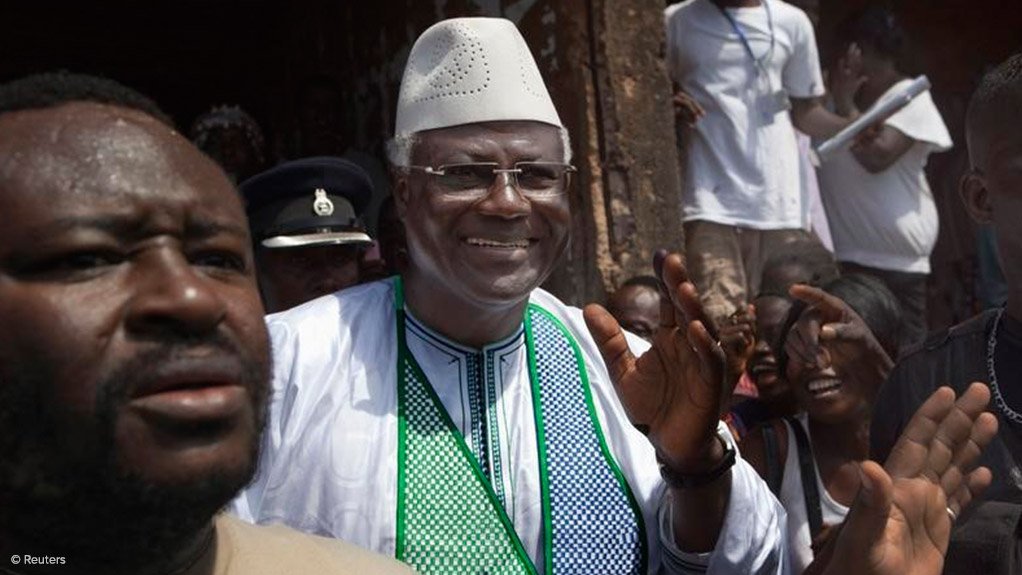Sierra Leone will vote on Wednesday for a successor to President Ernest Bai Koroma in an election dominated by an economic crisis caused by a collapse in iron ore prices and an Ebola epidemic.
Sixteen candidates are vying for the top job and four are seen as having a realistic chance of following Koroma, who has served his maximum two terms.
A civil war in the 1990s, fuelled by conflict diamonds and fought in part by child soldiers, killed tens of thousands of people and wrecked the West African country's economy.
An iron ore boom this millennium enabled years of double digit growth after the war, but this was cut short by a 2014 Ebola outbreak and a sharp drop in the price of its vast iron reserves.
The epidemic and the global commodities downturn shrank the country's economy by a fifth in 2015.
Since then growth has been lacklustre and many crave a sharp departure from Koroma's 10-year stint that they say did little to improve ordinary lives.
"The country lacks so many things. We need somebody who is going ... to prepare for the future, but as for now we are not anywhere (able) to compete with the next phase of the world," said 28-year-old Jeremiah Bangura.
He spoke at a rally for the newly formed National Grand Coalition where thousands blew whistles and held up pictures of their candidate, former United Nations Under-Secretary Kandeh Yumkella.
Politics has been dominated by two ruling parties since independence from Britain in 1961: the ruling All People's Congress, which is fielding ex-foreign minister Samura Kamara, and the Sierra Leone People's Party behind Julius Maada Bio, who briefly ruled as head of a military junta in 1996.
Disenchanted young voters may look elsewhere, raising the possibility that the polls may go to a second round.
Apart from Yumkella, the Coalition for Change (C4C) party, whose candidate is Samuel Sam-Sumana, has also garnered strong support for denouncing both major parties' records on corruption.
Sierra Leone stands at 179th out of 188 countries on the UN's Human Development Index. A mudslide in the capital Freetown last year killed 500, restarting a debate over unsafe housing in crowded cities.
EMAIL THIS ARTICLE SAVE THIS ARTICLE
To subscribe email subscriptions@creamermedia.co.za or click here
To advertise email advertising@creamermedia.co.za or click here











